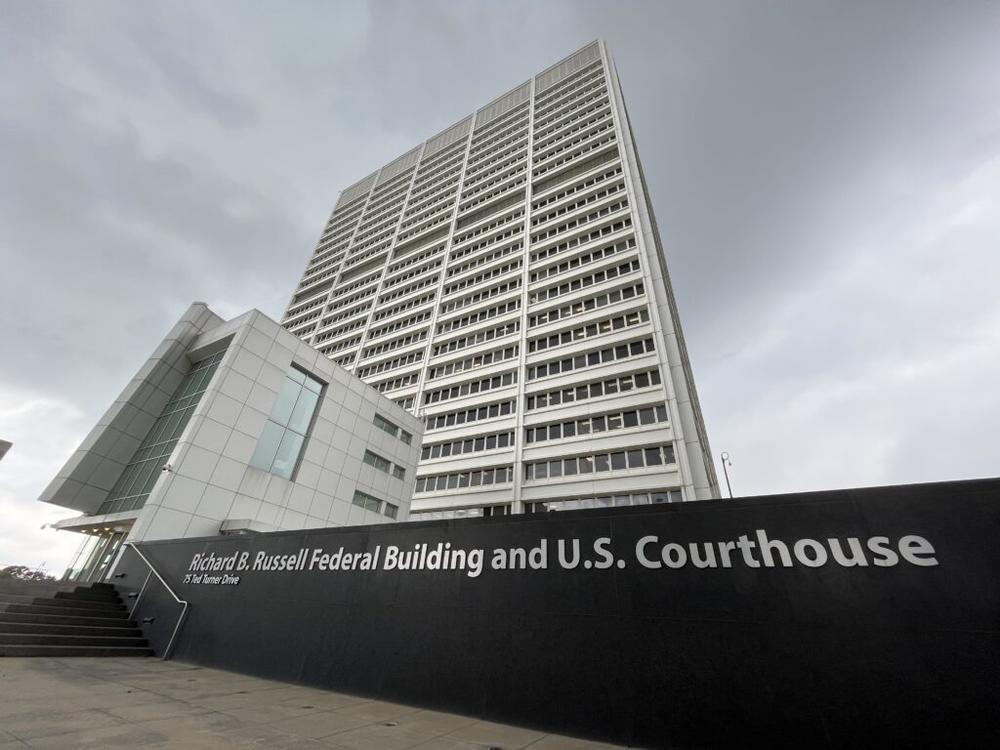
Caption
Redistricting cases playing out in federal court could affect the balance of power on the national level, where Republicans hold a fragile majority in the U.S. House.
Credit: Jill Nolin/Georgia Recorder

Redistricting cases playing out in federal court could affect the balance of power on the national level, where Republicans hold a fragile majority in the U.S. House.
Another challenge to Georgia’s political maps is set to go to trial after the state was unable to persuade a three-judge panel that the pair of cases should be tossed out.
The federal court denied the state’s attempts to block a fast-approaching November trial, which will come on the heels of a nearly two-week redistricting trial held last month.
U.S. District Court Judge Steve C. Jones wrote in a two-page order that a full decision is in the works but the panel wanted to go ahead and announce now that the state’s motions for summary judgment are denied to “allow the parties adequate time to prepare” for the next steps.
Jones, who presided over the September redistricting trial involving three other cases, sits on the panel with Judge Steven D. Grimberg and Judge Elizabeth L. Branch.
The redistricting challenges playing out in Georgia and other states have drawn more national attention since the U.S. Supreme Court issued its surprising ruling in June rejecting Alabama’s congressional map and and leaving Section 2 of the Voting Rights Act intact. The nation’s highest court has since stood behind its decision.
These cases could affect the balance of power on the national level, where Republicans hold a fragile majority in the U.S. House.
In Georgia, Black voters and civil rights and religious groups argue that state lawmakers designed congressional and legislative district maps that do not mirror the state’s growing Black population, diminishing Black voters’ ability to elect a candidate of their choice. Black voters in Georgia tend to vote for Democratic candidates at high rates.
Under Georgia’s new congressional map, Republicans now hold nine of Georgia’s 14 congressional seats, up from eight under the old map.
This week’s order represents an incremental development in the legal tests that have followed the special legislative session held in late 2021 to draw maps after the once-a-decade U.S. Census headcount.
But the groups representing one of the two cases celebrated the decision, which allows both sides to hash it all out next month in a downtown Atlanta courtroom.
“We are pleased the court rejected Georgia’s attempt to avoid a trial and accountability,” said Jack Genberg, senior staff attorney for the Southern Poverty Law Center. “At trial, we look forward to presenting the considerable evidence that the General Assembly racially gerrymandered Georgia’s congressional districts.”
The Montgomery-based Southern Poverty Law Center and the Dechert law firm are representing Common Cause Georgia, the League of Women Voters of Georgia and three Black voters who live in congressional District 13, which they argue was “packed” with Black voters.
The lawsuit accuses state lawmakers of manipulating the boundary lines of three congressional districts — the 6th, 13th and 14th — in a way that makes it more difficult for Black Georgians to have a fair say in who is elected to represent them.
Both of the legal challenges headed to trial next month argue the maps violate the 14th Amendment of the U.S. Constitution.
The other lawsuit, filed on behalf of the Georgia State Conference of the NAACP, the Georgia Coalition for the People’s Agenda and GALEO Latino Community Development Fund, is a broader lawsuit targeting several congressional and legislative districts. The Lawyers’ Committee for Civil Rights Under Law and the Crowell and Moring law firm are representing that group of plaintiffs.
Last month’s trial centered on three cases that claim the state’s congressional and legislative district maps violate Section 2 of the Voting Rights Act, which bans discriminatory voting practices.
Attorneys for the state freely acknowledge that politics were a key factor when deciding where to place the new boundary lines, which they are allowed to do. But they deny claims that the new districts were drawn based on race.
And in a March filing, the state’s attorneys argued the plaintiffs had failed to turn up any proof that the GOP-drawn maps were intentionally created to dilute the voting strength of Black voters.
“The resulting map split fewer counties than prior plans and increased Republican political performance,” Bryan Tyson, special assistant attorney general, wrote in his filing requesting summary judgment in the state’s favor. “Plaintiffs dislike this plan, but their evidence does not support their sweeping attacks on the congressional map, nor could Plaintiffs’ evidence support a ruling overturning those districts.”
A spokesman for Secretary of State Brad Raffensperger declined to comment Wednesday on this week’s decision since the litigation is still pending.
This story comes to GPB through a reporting partnership with Georgia Recorder.